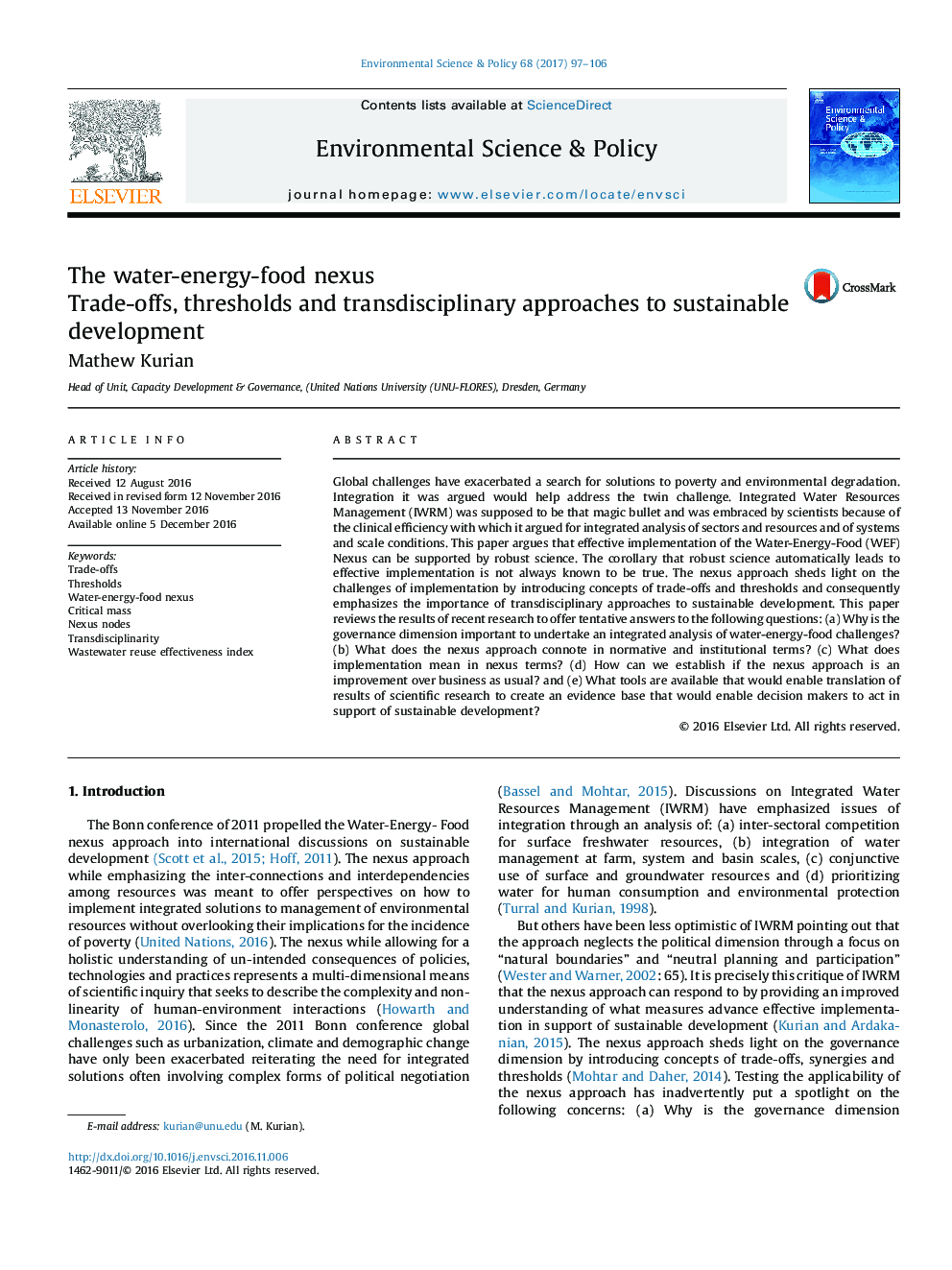| کد مقاله | کد نشریه | سال انتشار | مقاله انگلیسی | نسخه تمام متن |
|---|---|---|---|---|
| 5115840 | 1485040 | 2017 | 10 صفحه PDF | دانلود رایگان |
- Clear articulation of the water-energy-food nexus concept.
- Clear description of the paper objectives.
- Clear description of nexus concepts.
- Clear quantification of trade-offs through the example of wastewater reuse effectiveness index.
- Clear and up to date references on the nexus approach.
Global challenges have exacerbated a search for solutions to poverty and environmental degradation. Integration it was argued would help address the twin challenge. Integrated Water Resources Management (IWRM) was supposed to be that magic bullet and was embraced by scientists because of the clinical efficiency with which it argued for integrated analysis of sectors and resources and of systems and scale conditions. This paper argues that effective implementation of the Water-Energy-Food (WEF) Nexus can be supported by robust science. The corollary that robust science automatically leads to effective implementation is not always known to be true. The nexus approach sheds light on the challenges of implementation by introducing concepts of trade-offs and thresholds and consequently emphasizes the importance of transdisciplinary approaches to sustainable development. This paper reviews the results of recent research to offer tentative answers to the following questions: (a) Why is the governance dimension important to undertake an integrated analysis of water-energy-food challenges? (b) What does the nexus approach connote in normative and institutional terms? (c) What does implementation mean in nexus terms? (d) How can we establish if the nexus approach is an improvement over business as usual? and (e) What tools are available that would enable translation of results of scientific research to create an evidence base that would enable decision makers to act in support of sustainable development?
Journal: Environmental Science & Policy - Volume 68, February 2017, Pages 97-106
